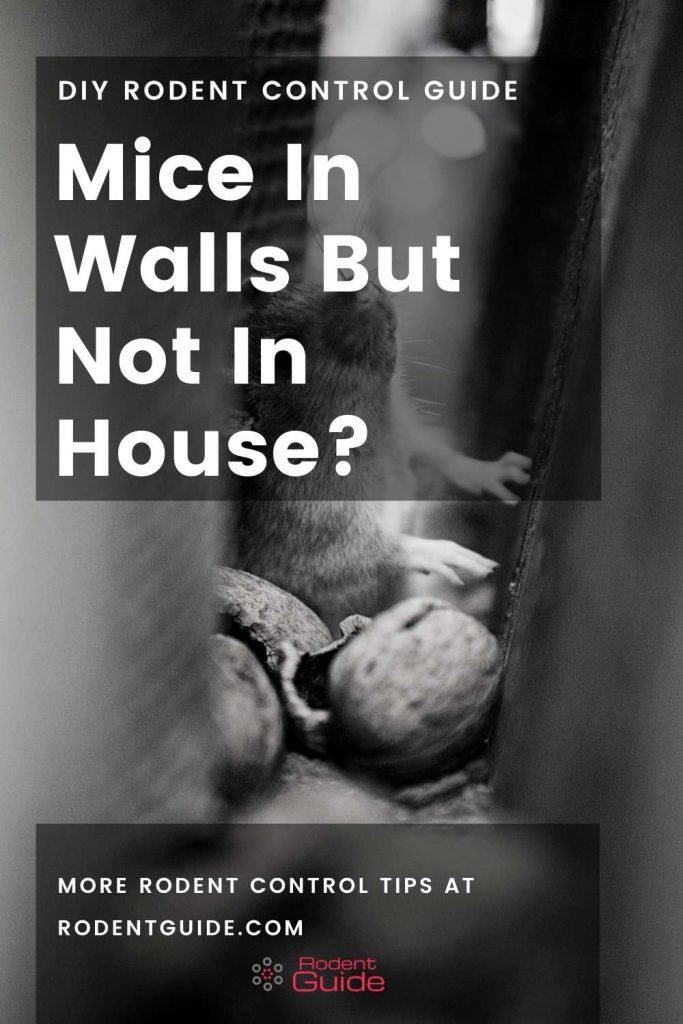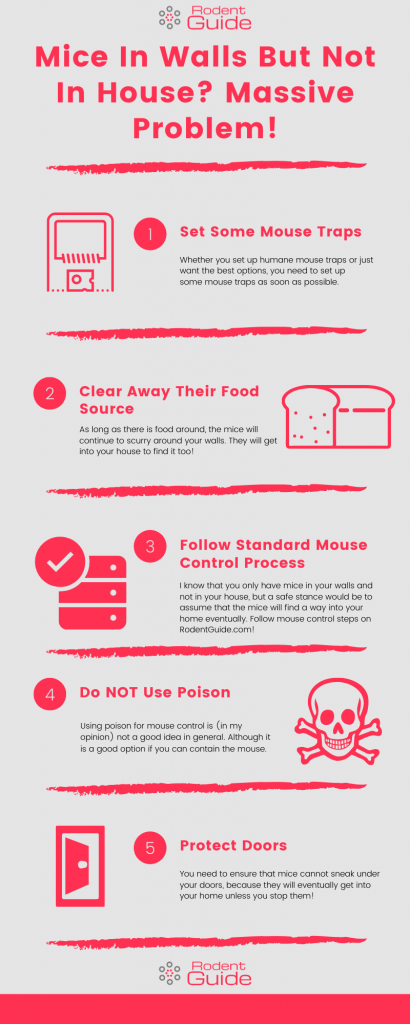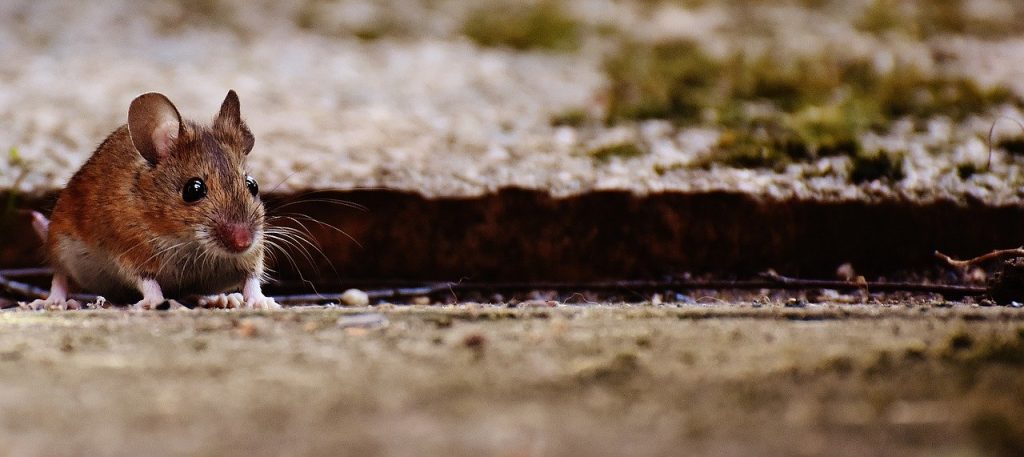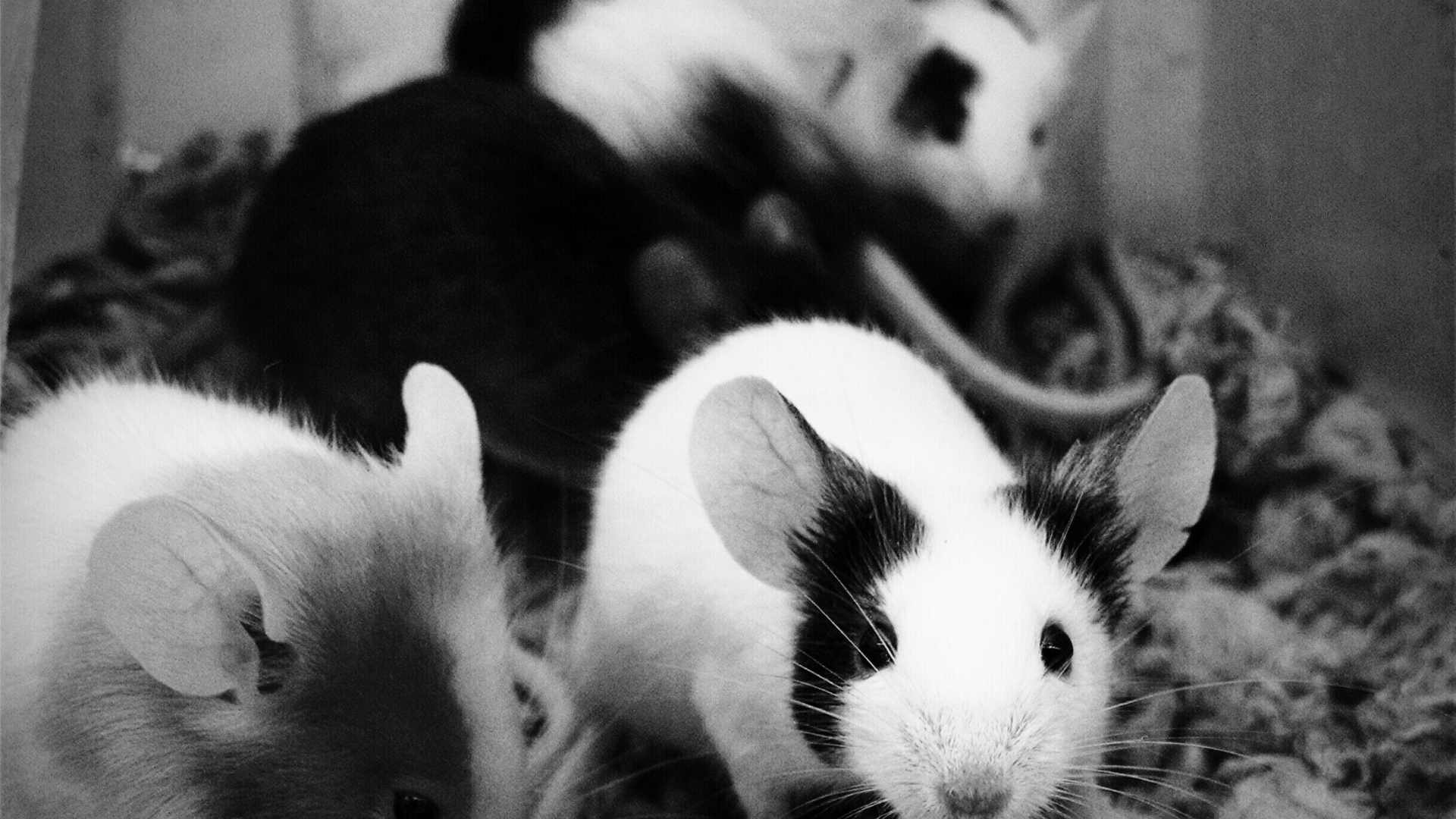There are several reasons why you want to keep mice outside the household.
Mice can wreak havoc at home, which is an important reason for wanting to get rid of mice, even if they are in your walls but not in your house!
When you realize that mice have made your walls a haven, you should take control measures as soon as possible. Mice can cause structural damage such as chewing electric cables and spreading diseases to people living within.

Can Mice Be In Walls?
Yes – mice can be in your walls. There are many reasons why mice are happy to be in your walls, but most of all, it offers them safe passage to travel around your home.
Your walls are a place with no predators, no humans, and many things to climb up to get to your attic!
Why Do I Have Mouse In My Walls?
You can thank Mother Nature for the infestation of mice in your walls!
To withstand the hot summer sun or the icy-cold winter, mice find human dwellings a perfect and convenient place. While trying to escape the unfavorable weather conditions, mice find it favorable to hide in the walls.
The most common entry points in how mice enter homes are through holes and cracks found on floors, foundations, and walls. Mice infestation on walls can be due to the following reasons:
Body Adaptability
Due to how their body is structured, mice can pass through tiny holes.
They can enter through openings that appear even tinier than their actual size.
Because of their small size and ability to climb, they can crawl and squeeze through a small wall and floor opening.
This will allow a mouse to get inside your walls, but it may not want to get into your home!
Improper Wall Plumbing
Mice can also enter your walls through sewer lines and drainage pipe gaps that are inadequately sealed.
They can enter through broken bathtub drains or sinks and find their way inside the holes around plumbing on the walls. Mice can also get to your walls through weep vents or deteriorating siding of walls and settle there.
Bushy Surroundings
Mice can get into your walls through tree branches and plants that grow around your property. Mice can use overhanging branches, shrubs, or vines to get into your walls.
Overgrown vegetation near the walls can also give mice a potential and favorable shelter and nesting place. A perfect area for opportunistic ‘mice wall’ infiltrators!
They Are Perfect Corridors For Travel
Not only do your walls offer mice the perfect shelter and security from outside and inside your home, but they are an undisturbed route around your home.
Mice will use your walls to navigate around your home in search of food and a place to set up a mouse nest.
If you think you have mice in your walls but not in your home, you should follow standard mouse control techniques to ensure they stay out of your home!
I Have Mice In Walls But Not In House. What Do I Do?

You should follow a mouse control process if you are sure that mice are in your walls but NOT in the house. Set some traps, clear away food, store it correctly, close mice entry points. Dealing with mice in walls is a challenge, but not impossible!
One question needs to be asked. Are you sure the mice are not in your house too? While they can be very noisy, mice can also be very quiet (ever heard the saying as quiet as a mouse?) I suggest that you check around your home for evidence of mice activity.

Set Some Mouse Traps ASAP
Whether you set up humane mouse traps or want the best options, you need to set up some mouse traps as soon as possible.
For a start, you don’t want mice in your home! Secondly, you will need to stop them before they begin multiplying.
Follow our guides to decide which mouse trap bait to use and set up your mouse traps (once you have them).
Setting up traps will temp the mouse. It would be best if you got the mouse out of the wall, loaded the trap with bait, and left the area. So temping mice out of a hiding place is easier if you are not there. It is step one for how to get mice out of your walls!
Clear Away Their Source Of Food
The mice will continue to scurry around your walls as long as there is food around.
Take the entire food and water source away.
Examine your bathroom and kitchen thoroughly for possible entry routes for mice.
Store your kitchen food in rigid or hard containers because mice can easily chew containers of low quality. Fix all potential water leaks, especially from the basement or attic.
If there is nothing to consume in your home, there is no reason for the mice to stay around.
Follow Standard Mouse Control Process
I know you only have mice in your walls and not in your house, but a safe stance would be to assume that the mice will eventually find a way into your home.
You must follow steps to ensure your home is protected by using mouse control techniques.
Do NOT Use Poison
Using poison for mouse control is (in my opinion) not a good idea in general. However, it is a good option if you can contain the mouse.
If you casually throw poison around your home or your yard, you run the risk of 2 things happening:
- The mice die in your walls – a costly mistake!
- You could kill other wildlife – be humane!
My advice – if you have mice in your walls but not in your home, do not use poison to kill them.
Protect Doors
Pay particular attention to your internal doors to increase the chances of keeping mice out of your home.
You must ensure that mice cannot sneak under your doors because they will eventually get into your home unless you stop them!
Removing A Mouse Stuck In A Wall
Check out this handy video on how to remove a mouse stuck in a wall:
Frequently Asked Questions
Can mice live in walls?
Mice can set up a nest in the walls of your home, yes. They will travel around the general vicinity of your home searching for food, and they may even venture into your house eventually. A mouse living in your walls is bad enough, but a mouse dying in your walls is a big problem too!
How do you tell if there are mice in your walls?
I have heard mice in walls hundreds of times! You hear scratching, scurrying, and knawing through your walls. If you are not sure, then stick a drinking glass to the wall and listen. Once you hear it, you will know it is mice or other rodents.
Are mice in walls dangerous?
Mice carry all kinds of horrible diseases, so you should consider them dangerous as long as they are near enough to you and your loved ones.
How long can a mouse live in a wall?
Mice can live in walls for long periods, as long as a food source is available. However, if the food source runs out, the mice will either starve to death or move on to searching for a new food source. Additionally, if the mice population gets too large for the space available in the wall, some of the mice will be forced to leave in search of a new home.
What is the fastest way to get rid of a mouse in the wall?
Using a live trap is the best way to get rid of a mouse in your wall. You can place the trap along the baseboard or in the corner of a room where mice are active. Once you have caught the mouse, you can release it outside, far away from your home.
If you don’t want to use a trap, you can try baiting mice with food and following them back to their entry point. Once you’ve found the hole, seal it with steel wool or caulking so the mice cannot get back in.
What do mice in walls sound like?
You likely have mice if you’re hearing scratching or scurrying sounds in your walls. Mice are good climbers who can squeeze into tiny spaces, quickly getting into your walls. Once they’re in, they’ll build nests and multiply quickly. If you have mice in your walls, you may hear them:
- Scratching or scurrying sounds: Mice are active at night, so you’re most likely to hear them then. If you hear scratching or scurrying sounds in your walls, it’s a good indication that you have mice.
- Chewing: Mice like to gnaw on things, which can damage your walls and wiring considerably. If you hear chewing sounds, it indicates that you have mice.
If you think you have mice in your walls, taking action immediately is essential. Mice can cause a lot of damage to your home, and they can also carry diseases.
Conclusion
The 5 tips I have given you on this page will help if you have mice in your walls but not in your house.
The most important thing is to treat the situation as if you have a mouse infestation problem. That includes following excellent mice control advice.
Good luck!







